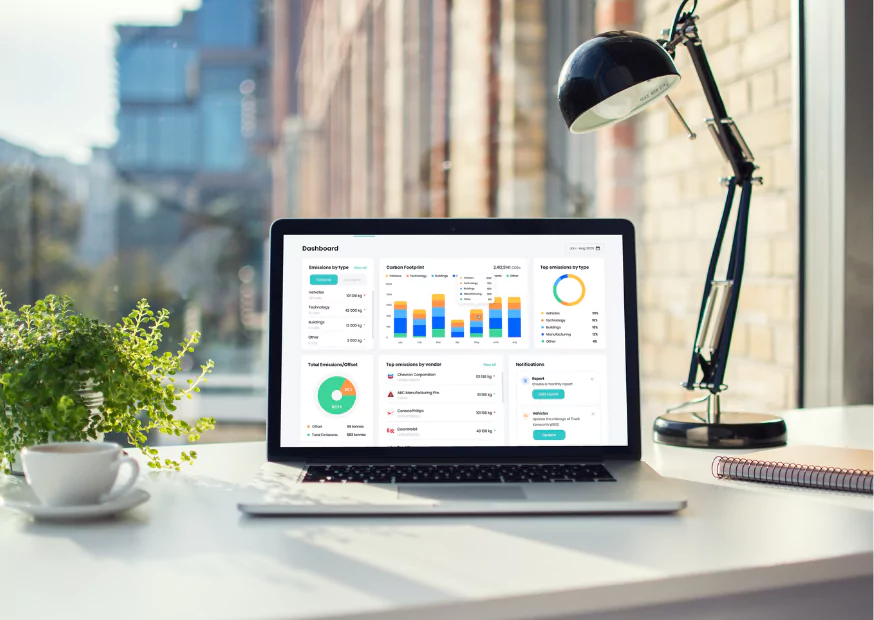The Potential of Carbon Accounting Through Platforms
Organizations of all sizes are recognizing the importance of becoming carbon-neutral and reducing their carbon footprints. Taking meaningful, measurable steps toward sustainability is no longer an optional goal for many businesses – it’s a necessity. In order to effectively manage and reduce their carbon emissions, organizations need to have a reliable carbon offset carbon credit trading service accounting platform to accurately track, analyze, and report their carbon emissions.
Simplifying the Carbon Accounting Process with a Comprehensive Platform
As businesses become increasingly focused on the environment, they must actively monitor the impact they have on their surroundings. One of the most important metrics organizations look at is their carbon footprint and the various areas of their operations that contribute to it. By understanding this, businesses can develop strategies for reducing their environmental here impact and remain in compliance with relevant regulations. However, the process of tracking, managing, and reporting on carbon information can be time-consuming, complicated, and expensive. Fortunately, with the emergence of comprehensive, cloud-based carbon accounting platforms, businesses of all sizes now have access to sophisticated technologies that can dramatically simplify the carbon accounting process.
Exploring the Benefits of a Robust Carbon Accounting Platform
The modern business world is riddled with regulatory complexities, financial obligations, and the need to be mindful of sustainability. For many organizations, managing the carbon emissions inherent in their operations is a key priority. A robust carbon accounting platform can help businesses stay informed, compliant, and sustainable. By tracking emissions and providing visibility into the full carbon profile of an organization, a carbon accounting platform can be an invaluable tool.
A robust carbon accounting platform is one of the most important tools available to businesses in this endeavor. It provides an accurate, organized and comprehensive view of the entire carbon emissions management process, from initial tracking and reporting to offsetting and managing emissions. A carbon accounting platform can help businesses reduce their emissions and understand their impact on the environment. Additionally, it can also provide valuable data that can be used to inform decisions around energy efficiency, waste reduction, and sustainability.
Streamlining Carbon Accounting with Innovative Platforms
In a world that is becoming increasingly aware of its environmental impact, carbon accounting is one of the most important factors Greenly earth when it comes to measuring and managing environmental footprints. Carbon accounting provides organisations with an objective way to measure their environmental performance and to identify opportunities for improvement. However, traditional methods of carbon accounting can be inefficient, costly and time-consuming. For this reason, innovative platforms have been developed to streamline the process and provide organisations with a more efficient and cost-effective solution.
As the global conversation around climate change continues, organizations are increasingly focused on ways they can reduce their carbon footprint. This is why it is increasingly important for organizations to understand their carbon accounting. Carbon accounting is the process of quantifying how much carbon is emitted by an organization and tracking how that amount changes over time. Streamlining carbon accounting with innovative platforms can enable organizations to improve their carbon footprint, while administering their carbon management activities more effectively.
How Platforms are Revolutionizing Carbon Accounting?
In today’s environment, companies are looking for ways to accurately track their environmental footprints. Carbon accounting and other environmental metrics can provide the data needed to measure progress and inform decisions. Platforms are emerging as a powerful tool to revolutionize carbon accounting and help companies move toward a more sustainable future.
Platforms are offering an efficient, effective way to track energy use, emissions levels, and other important metrics. By providing an integrated, intuitive system, companies can monitor real-time data, track emissions levels and energy use, and generate reports quickly and efficiently. With this data, companies can understand how their operations are impacting the environment and make the necessary adjustments. On top of the advantages to the environment, companies are also seeing cost-savings as a result of accurately tracking their emissions.
Conclusion
In conclusion, carbon accounting is an important tool for businesses looking to reduce their carbon footprint, increase efficiency, and adhere to environmental regulations. With the help of carbon accounting platforms, businesses can better understand their environmental impact and take actionable steps to reduce their carbon emissions. By incorporating carbon accounting into their operations, businesses can make a positive impact on the environment and help achieve a more sustainable future.







